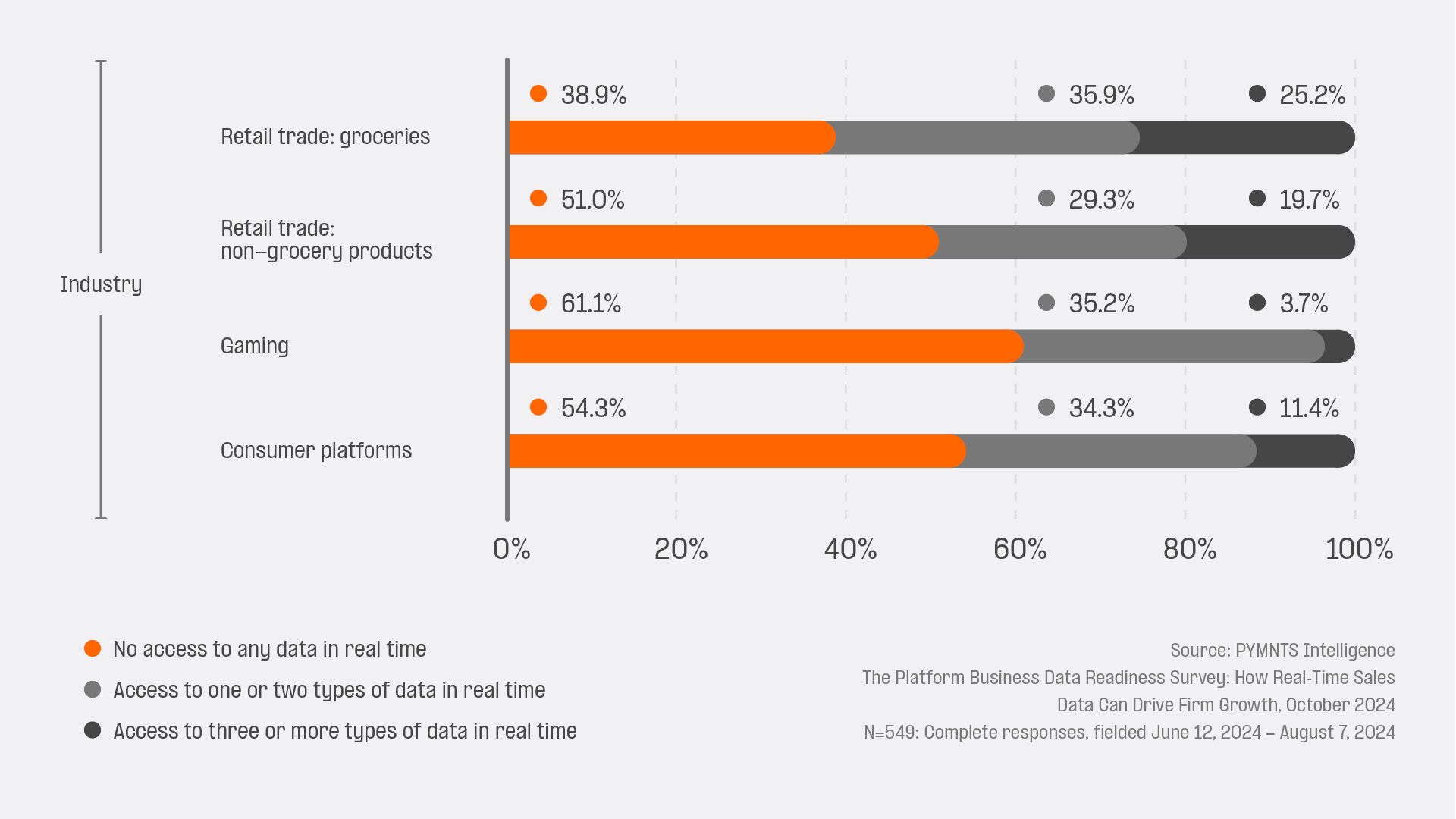Retail’s Competitive Edge: How Data-Driven Insights Fuel Growth


A new report reveals how important real-time business intelligence is to promoting better operations and added revenue
In the world of retailing, where profit margins often run incredibly thin, the ability to drive growth and remain competitive often comes down to one critical asset: data. Retailers can’t boost operational efficiency or give customers what they want if they don’t have ready access to business intelligence – from customer, marketing and sales data to payment, supply chain and performance metrics – preferably in real time. Many businesses, however, continue to lack the ability to access, process and analyze such real-time data. The result is less-informed decision making and more missed opportunities to grow.
Highlights of the report:
- 75% of non-grocery retailers consider access to real-time data very or extremely important
- 51% of non-grocery retailers lack access to real-time data
- 42% of grocery merchants have dedicated analytics teams that can analyze companywide data
- 70% of data-ready grocery merchants report revenue growth in the last year
- Data-ready retailers had five times the revenue growth of less data-ready companies
That’s the central insight in Data-Driven Advantage: How Grocery and Retail Merchants Can Accelerate Growth, a collaborative investigation by PYMNTS Intelligence and Carat from Fiserv. Between June 12, 2024, and Aug. 7, 2024, research teams surveyed 390 executives working at U.S. grocery and non-grocery retailers that had generated at least $500 million in revenue in 2023. The resulting report appraises the firms’ data readiness and how access to real-time sales data impacts their businesses.
What is data readiness?
Data readiness may be defined as access to secure, real time, decision-ready data across business units in an organization. But broad access is only the starting point; the accuracy, integrity and timeliness of the data are what make it most useful. In the PYMNTS/Fiserv survey, grocery and non-grocery retailers reported significant operational challenges when they lacked complete, timely or usable data.
Real-time gaps
The survey found that more than half of merchants lack access to real-time data, especially for sales, supply chain and performance.
And even among companies with widespread access to data and analytics, many grocery and non-grocery retailers still had limited data sharing across departments. One in five retailers surveyed operate in data silos, restricting valuable insights to individual teams rather than leveraging them across the organization. Without companywide integration, decision makers lack the comprehensive view need to identify trends, streamline operations and make informed strategic decisions.
The costs of “flying blind”
Businesses without companywide data access report a variety of negative consequences, including issues with scalability and competitiveness; errors and delays; customer churn; labor and staffing; security; and diminished profits. The findings reinforce the importance of data readiness in enabling retailers to leverage data and reap its benefits.
Data-ready retailers excel
The report reveals that retailers with strong data capabilities – both in the grocery and non-grocery categories – are far more likely to have experienced revenue growth over the past year. In fact, those leveraging data effectively reported revenue increases at more than five times the rate of less data-ready businesses.
A key differentiator was whether companies employed companywide analytics teams. Grocery firms with such teams reported a 5.3% average revenue increase – nearly double the 2.7% for those without. For non-grocery retailers, the difference was even more stark: The firms with companywide analytics teams posted 3.5% growth, while those without the dedicated teams experienced an average 0.4% revenue decline.
What it all means
The data support the finding that ability to access, share and analyze data is essential to help drive revenue growth and stability.
True data readiness requires specialized solutions integrated across various operations in an organization. Fiserv creates and deploys leading-edge analytics solutions that help merchants turn data into business impact.
